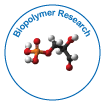当社グループは 3,000 以上の世界的なカンファレンスシリーズ 米国、ヨーロッパ、世界中で毎年イベントが開催されます。 1,000 のより科学的な学会からの支援を受けたアジア および 700 以上の オープン アクセスを発行ジャーナルには 50,000 人以上の著名人が掲載されており、科学者が編集委員として名高い
。オープンアクセスジャーナルはより多くの読者と引用を獲得
700 ジャーナル と 15,000,000 人の読者 各ジャーナルは 25,000 人以上の読者を獲得
抽象的な
Nanoparticles: Treatment of Skin Cancer by Topical Drug Delivery
Wasilewska A
Nanotechnology involves the engineering of functional systems at nanoscale, thus being attractive for disciplines ranging from materials science to biomedicine. One of the most active research areas of the nanotechnology is Nano medicine, which applies nanotechnology to highly specific medical interventions for prevention, diagnosis, and treatment of diseases, including cancer disease. Over the past two decades, the rapid developments in nanotechnology have allowed the incorporation of multiple therapeutic, sensing, and targeting agents into nanoparticles, for detection, prevention, and treatment of cancer diseases. Nanoparticles offer many advantages as drug carrier systems since they can improve the solubility of poorly water-soluble drugs, modify pharmacokinetics, increase drug half-life by reducing immunogenicity, improve bioavailability, and diminish drug metabolism. They can also enable a tunable release of therapeutic compounds and the simultaneous delivery of two or more drugs for combination therapy. In this review, we discuss the recent advances in the use of different types of nanoparticles for systemic and topical drug delivery in the treatment of skin cancer. In particular, the progress in the treatment with Nano carriers of basal cell carcinoma, squamous cell carcinoma, and melanoma has been reported.

 English
English  Spanish
Spanish  Chinese
Chinese  Russian
Russian  German
German  French
French  Portuguese
Portuguese  Hindi
Hindi